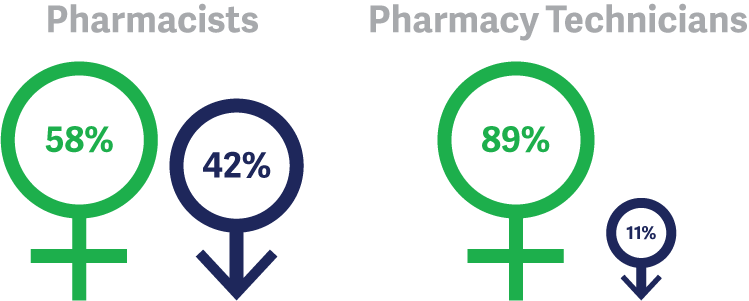2015/16 Annual Report
Registration and Licensure
All pharmacists and pharmacy technicians in British Columbia must register with the College in order to practise. In addition, all pharmacies in the province must acquire a licence from the College in order to operate.
The College registration process ensures that pharmacy professionals must meet the ‘entry to practice’ standards and possess the knowledge, skills and abilities to be able to provide safe pharmacy care. Registrants must also meet annual professional development and continuing education requirements to ensure ongoing competence throughout practice.
The College is responsible to maintain a register which lists registered pharmacy professionals and licensed pharmacies in BC. The College must also publicly share any registrant or pharmacy limits, conditions, suspensions or cancellations. The register and any notifications with regards to penalties are available on the College website.
Registrants must also complete a criminal record check and carry professional liability insurance as a requirement of their registration.
Regulated Pharmacy Technicians
The transition period for pharmacy assistants to become regulated pharmacy technicians ended on December 31, 2015. This pathway was open to existing pharmacy assistants who were in practice at the time the College created a new category of registrant, a pharmacy technician, in 2011/12. The transition period provided a 5-year timeline to complete the necessary requirements to become fully registered with the College.
Regulated pharmacy technicians are directly responsible and accountable for an expanded scope of technical functions related to pharmacy services, including preparing, processing, compounding and providing the final check of a prescriptions.
Mandatory Criminal Record Check
The Criminal Record Check (CRC) is a requirement of the Criminal Records Review Act (CRRA) and is intended to help protect children and vulnerable adults from physical, sexual or financial abuse. All health care practitioners under the Health Professions Act (HPA) must consent to a CRC at least once every five years regardless of whether or not they work directly with children or vulnerable adults.
In 2013, the CRRA was updated to include fingerprinting for selected individuals as an additional verification step of a CRC. This additional step is mandatory for those selected. Selection is determined at the discretion of the BC Ministry of Justice and is based on characteristics such as gender and birth date. The BC Ministry of Justice will notify you by mail if you are required to complete the fingerprinting verification step and it must be completed as soon as possible.
The College is not responsible for any portion of the Criminal Record Check as the BC Ministry of Justice administers all aspects. The CRC is a function of your registration category whether or not you interact directly with children or vulnerable adults in your daily work.
Registrants are required to consent to a criminal record check. Should a registrant refuse to consent or fail a criminal record check, the College would forward that case to the Inquiry Committee.
If a non-registered pharmacy professional refuses to consent or fails a CRC during the process of registering with the College, the application would go to the Registration Committee for review.
Mandatory Liability Insurance
All practising pharmacy professionals must have professional liability insurance with the following minimum criteria:
- Minimum of $2 million coverage insuring against liability arising from an error, omission or negligent act of the registrant, and
- Policy provides occurrence-based coverage or claims-made coverage with an extended reporting period of at least three years, and
- If not issued in the registrant’s name, the group policy covers the registrant as an individual.
Drug Administration by Injection and Intranasal Route
Effective December 3, 2015, the Ministry of Health made an amendment to the Pharmacists Regulation which allows for qualified pharmacists to administer a drug (Schedule I, IA or II) or substance (Schedule III) by the intranasal route, or by intradermal, intramuscular or subcutaneous injection for the prevention of disease, disorders or conditions, and for the treatment of anaphylaxis.
The current certification is restricted to immunizations only. Further development regarding certification of other drug administration is being explored by the College.
These amendments build upon the existing authority pharmacists received to administer injections in July 2009. Pharmacy students may also apply for the authority to administer a drug by intranasal route or by injection as a result of changes to the HPA in 2013 and 2015.







